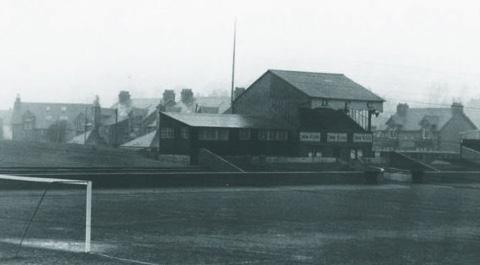
2 minute read
A LESS THAN AUSPICIOUS START
One hundred years ago to the day, Dundee Hibs morphed into Dundee United, but despite being such a seismic moment, in what were very different days, press coverage of such a historic event was minimal at best.
Mind you, the saga of the pending name change had been going on since the start of the season following the club’s successful re-election to the Scottish League after a season spent in the Alliance League in which Hibs struggled against First Division reserve sides.
Advertisement
Indeed, agreement with Dundee FC on the name change had been agreed ten days earlier and only the rubber-stamping of the change was required. Whilst the Prince of Wales in the city to officially open the Caird Hall occupied column inches, parochially, awaiting official sanction ahead of Saturday’s trip to Boghead to fulfil a Second Division fixture weighed much more heavily on the minds of Tannadice officials.
The Evening Telegraph of Friday 26 October animated that the long wait was nearly over, and that confirmation was imminent. Nevertheless, the following day’s Courier still listed the Boghead-bound team as Dundee Hibs.
However, by kick-off, the Sons found themselves facing Dundee United, but it certainly didn’t prove to be a gala occasion! At least the curtain on Dundee Hibs the previous week had come down victoriously, bowing out a Forthbank with a 3-2 win over Kings Park.
Though the name may have changed, the personnel certainly did not as Manager Jimmy Brownlie entrusted the eleven to secure an inaugural success under the ‘United’ banner.
But the fledgling steps of United proved to be faltering ones against the Sons of the Rock. One thing is for sure, the game didn’t exactly captivate the paying public. Indeed, the counter-attraction of local rivals Dumbarton Harp’s fifth-round Qualifying Scottish Cup tie with Queen of the South proved detrimental to the Boghead gate.
According to reports, less than five hundred were present at the start and even by the end numbers did not exceed two thousand!
Those present from the start witnessed United have very much the better of the early proceedings. The Tannadice forwards were carrying a far greater threat than their home counterparts and really should have turned around in the ascendancy.
Both Sandy Gilmour (pictured) and Bobby McEwan passed up good openings early on.
James Cottingham was another sinner in front of goal as United enjoyed their best period of play. Certainly, Arthur King in the home goal was the busier of the two ‘keepers.
However, as that first period progressed, the home side became more influential in proceedings, culminating in them going ahead eight minutes from half-time. Player/ boss Jimmy Brownlie failed to clear Newman’s rising shot and Philip Kennedy rushed in to score the first goal conceded by newly-named United.
Ironically, that counter came whilst the visitors were temporarily reduced to ten men as Bob McEwan was back in the pavilion, ‘getting repaired’ as the reporter of the day so quaintly described it. United’s sparkling start was but a distant memory after the interval as Dumbarton dominated. Rather cruelly, The Evening Telegraph reported, “In the second half, there was nothing about the United display to write home about.”
Unlike the first, King hardly troubled, whilst Brownlie ‘held the fort for some time’.
However, 20 minutes from the end, he was beaten by Andrew Mair’s low long-range shot as the hosts doubled their lead. Then in the closing stages, Thomas Love drilled home goal number three, thereby compounding that bitterly disappointing second-half display.
A fact explicitly endorsed by the Tele scribe. He wrote, “United’s second-half display was the worst seen at Boghead this season.”
Player/boss Brownlie, middleman John Swan and winger James Mackie and Gilmour got pass marks on a desperately disappointing afternoon.
That it was an inauspicious start, there is no denying, and the Evening Telegraph reporter’s frank appraisal read, “On Saturday’s second-half display, Dundee United will have to show marked improvement if they are ever to reach the upper circle.”
Fortunately, the managerial shrewdness of Brownlie ensured that less than two years later, United were playing in the First Division, and the rest, as they say, is history.



